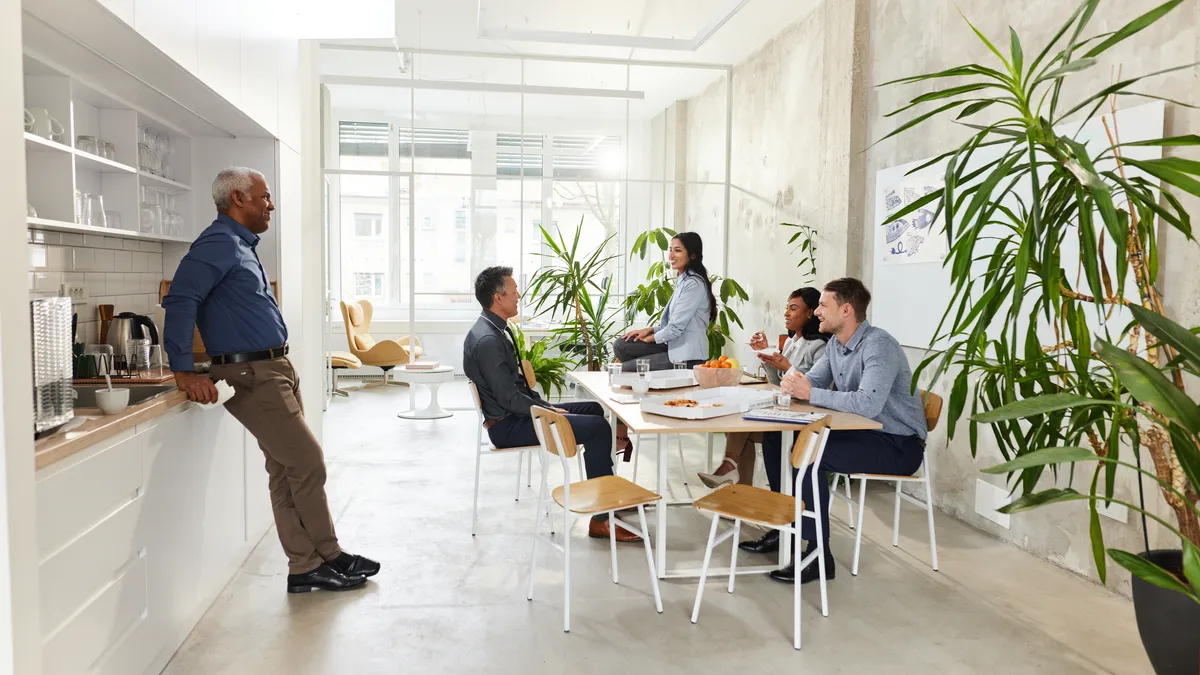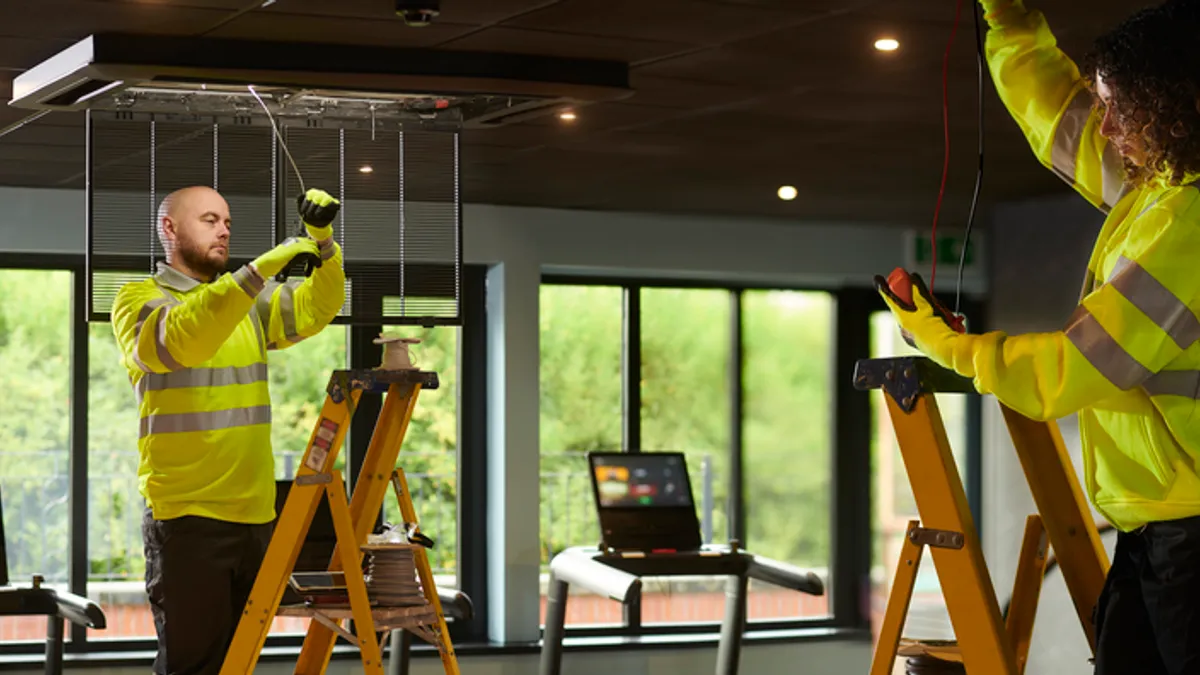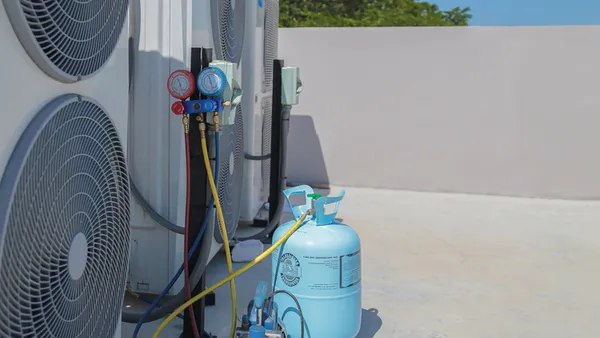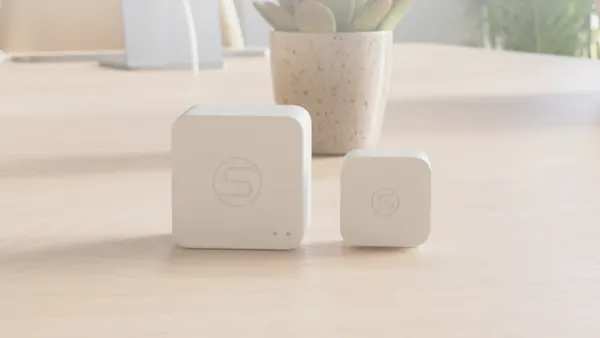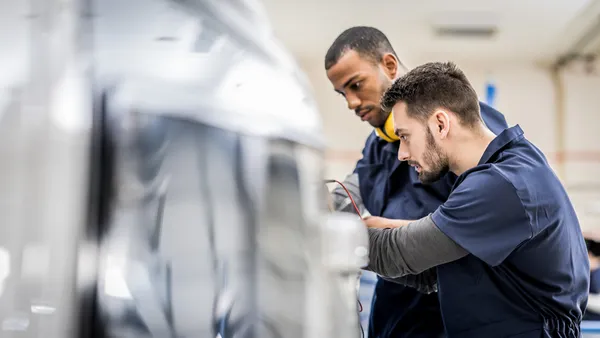Dive Brief:
- With many employees spending half or less of the workweek on-site, companies are looking at whether on-site cafeterias are the best option for corporate dining, according to a survey report by ezCater.
- Sixty-six percent percent of corporate cafeteria decision-makers predict the workplace cafeteria format will change, with 62% saying a “flexible employee food option” should replace the traditional cafeteria, according to its survey of over 1,200 cafeteria decision-makers and employees.
- The survey also identified employee dining priorities, which include convenience, valued by 75% of employee respondents; taste, 75%; and variety, 76%. Employees also underscored a desire for flexibility as 70% said they would prefer a service where they could choose an individually packaged meal from a selection of local restaurants rather than from an on-site cafeteria.
Dive Insight:
More than 80% of surveyed employees who work on-site at least one day a week said that food incentivizes them to come into the workplace, with 71% saying they would alter their schedule to obtain free food.
Workplace cafeterias can be expensive, however: 80% of decision-makers report that their corporate cafeterias occupy at least 5,000 square feet, and 40% say they spend over $1 million per year to operate and maintain them. Cafeteria operating costs are too high, according to 55% of decision-maker respondents, and 78% expect those costs to rise year over year.
The decision-maker respondents question the value cafeterias are providing. Thirty-nine percent of decision-makers said that cafeterias are “simpy not used enough to validate their expense,” while 61% of those in hybrid workplaces said that scheduling makes operating a traditional cafeteria a challenge.
Today’s workplaces are no longer satisfied with existing models, ezCater says. Ninety-one percent of decision-makers surveyed said a scalable, recurring employee meal program would be useful for their workplace. While ezCater’s Relish is one such service, others entering the U.S. market include Felfel, a Switzerland-based company that offers “smart fridge” customized vending machines for daily meals and snacks. It expanded its service to New York City as well as the New York, New Jersey and Connecticut suburbs this year.
Other companies provide similar services for beverages. Bevi uses a “smart water cooler” to provide a customizable drink selection to employees, while Royal Cup Coffee and Tea and VendiBean are among companies that offer on-site coffee and tea services.
When asked what leaders might replace existing cafeterias with, 28% said they imagine using the space for alternative food and dining options. Fifty-six percent said they could use the space for additional workspace, collaboration space or flexible space, while 11% cited the potential to sublease or eliminate the cafeteria space entirely.



